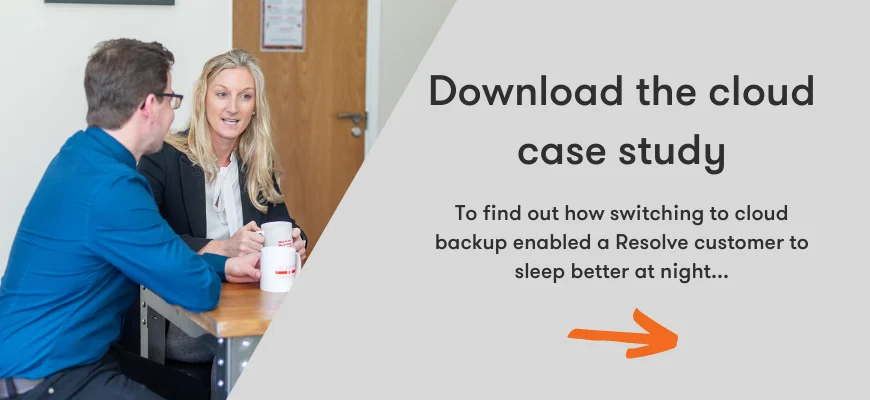Understandably, when considering migrating your IT infrastructure to the cloud, there is a concern about security. After all, whilst your data and applications are saved on a server that sits in a small room just next to your office you know exactly where it is, you will always be able to access it and know it is safe from prying eyes.
Can you really guarantee that your data will remain secure if you move it all to “the cloud”? If you can’t see the physical servers it is stored on and if you can’t hear the fans whirring away, where is it? And if you don’t know exactly where it is… how can you know it is secure?
The risks of data security
To understand why data is more secure in the cloud, you first need to understand what the general risks are with regards to data security. From a managed services provider perspective, the three biggest risks to your business in terms of data security (in no particular order) are hardware failure, malware and people.
If you have good backups of your on-premise systems, then although hardware failure or malware (e.g. ransomware) might impact your business continuity in the short term, you should be back up and running in a finite amount of time, assuming your disaster recovery plan is robust.
Unfortunately, the risks to your data security in terms of people is not really an IT problem. We can ensure that people only have access to the data they are supposed to have access to, that they have strong passwords and encrypted disks in their laptops. But there is a limited set of things we can do to stop that information leaving your organisation if staff are either careless or act maliciously.
How data in the cloud is more secure
So, let’s look at why data stored in the cloud can be more secure…
If your data is in the cloud, then the chances of an interruption to business continuity due to a hardware fault is a lot lower. The physical infrastructure that cloud service providers rely on has many more layers of redundancy and fault tolerance than it would ever be possible to achieve in most businesses. And even if the internet fails in your office, you can easily access your data at home or via your mobile internet connection.
Most cloud services now have protection against malware such as ransomware, limiting the amount of damage and interruption that they can cause. Of course, we still encourage organisations to maintain a good separate backup of their data.
The level of permissions that can be set on data in the cloud is still as granular as it is on a physical server, right down to the file level if you wish. In situations where data protection requires an increased level of security due to regulation or governance then some cloud platforms provide additional controls which limit the distribution of data – this is often more complex to implement in a standard on-premise file server implementation.
With the release of Microsoft 365 the levels of control around data loss have been made much more accessible.
So, can your data be more secure in the cloud? At Resolve we’d say if it’s done right, then it can be even more secure. If you want to find out more, give us a call on 0114 2994050 or complete the box below.




